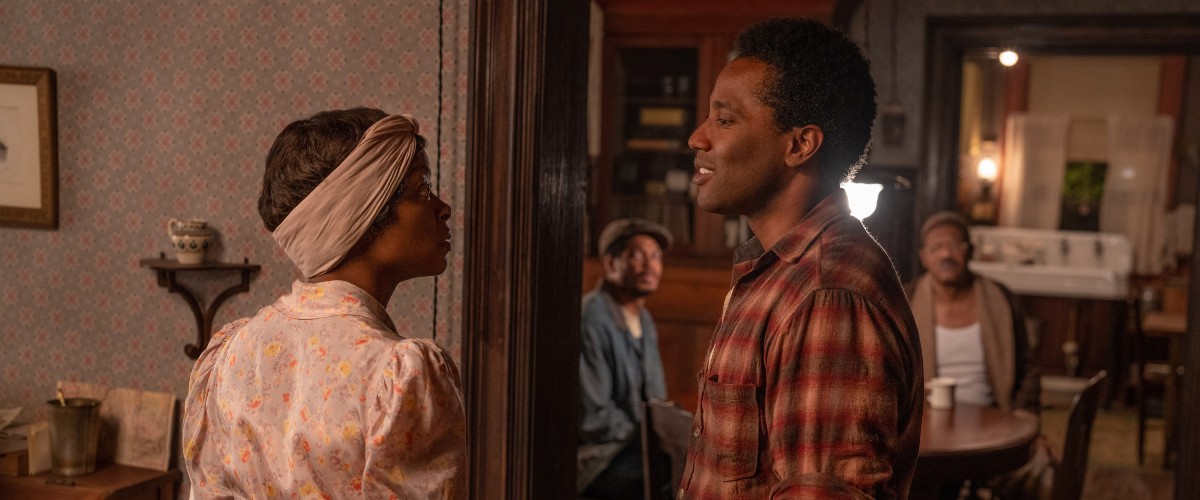Good morning! The Oscar nominations are officially in the books, and thanks to a very game Bowen Yang and Rachel Sennott doing the announcements, it seems the nominees even had their names pronounced correctly. As always, there were surprises both good and bad; that’s the way it goes when ten thousand people collectively vote based on their taste (or based on who they sipped champagne with at a campaign event).
Some of the unfortunate omissions were known long in advance, as when Jon Batiste’s kinetic original score for “Saturday Night” didn’t even make the Shortlist last month. (Also pour one out for my beloved “Hit Man” and “My Old Ass,” who we knew wouldn’t be mentioned today.) Other omissions were less predictable, like two beloved Brits, Daniel Craig and Hugh Grant (both never nominated), being left out of the Best Actor race. And a few omissions were downright soul-sucking. Let’s start there.

As must always be mentioned on nomination morning, the movies you love that didn’t receive collective love from the Academy today will still be there for you, unchanged, for the rest of your life. And “Hard Truths” is absolutely a movie I expect many of us will continuously revisit for the rest of our lives. When it premiered to raves at Toronto last September, the story was how Cannes and Venice possibly could have rejected it. Now the story is how Academy voters managed to reject it as well.
The biggest and most unfortunate snub of the day is Marianne Jean-Baptiste, who was awarded Best Actress from every major critics group in the country (New York, Los Angeles, Chicago, National Society of Film Critics, etc.). Her performance should have been undeniable, and sadly the takeaway isn’t that voters disagreed, but that they likely didn’t watch the film at all. In a year where the Los Angeles wildfires likely affected how deep voters got into their To Watch stacks, we’ll try to be understanding and forgiving. But it’s still surprising that the Writers Branch couldn’t even muster up some love for Mike Leigh, who they’ve nominated five times before.

Also totally blanked today was one of the year’s most widely loved films, “Challengers.” That was to be expected with the major categories, but the propulsive score by Trent Reznor and Atticus Ross missing out—which I’m furiously typing away to at this very moment—may have been the biggest pure shock of the morning after they won the Golden Globe and looked like genuine contenders for the Oscar. And the Reznor/Ross pair were double snubbed, also missing out on a Best Original Song nomination for the film’s killer end credit track, “Compress / Repress.” And those weren’t even the only notable snubs today by the Academy’s often-questionable Music Branch…

Kristen Wiig’s delightful original song, “Will & Harper Go West,” ended “Will & Harper” on such a lovely note, and there was hope the Music Branch would honor the heartwarming role it played in the film. Sadly less surprising was “Will & Harper” getting excluded from the nominations for Best Documentary Feature, as the Documentary Branch gets seemingly more averse to crowd pleasers and celebrity populism every year. “Will & Harper” almost certainly would have won the Best Documentary Feature Oscar if it were nominated, which is probably why voters ignored it. (And the category’s other potential shoo-in winner, “Daughters,” went equally un-nominated.)

“Gladiator II” & “The Piano Lesson“
One of the enduring Oscar lessons every year is to not fall for the effusive hype an acting performance generates on social media immediately after a film’s premiere. Case in point: Denzel Washington looked like a serious contender for the Best Supporting Actor Oscar for about a week, until the full gamut of reviews for “Gladiator II” started trickling in, and the film’s Oscar chances quickly began eroding.
And Denzel Washington’s rough morning didn’t end there. “The Piano Lesson,” which Denzel produced, his son Malcolm Washington co-wrote and directed, and his other son John David Washington starred in, also received zero nominations. This is particularly unfortunate for Danielle Deadwyler, who gave an incredible supporting performance in the August Wilson adaptation. But as with her commanding lead performance in “Till” two years ago, voters appeared uninterested in even watching her work.

RaMell Ross & Jomo Fray
Sadly, the number of Black-centric films that had disappointing mornings doesn’t end with “Hard Truths” or “The Piano Lesson.” It’s hard to say “Nickel Boys” had a bad morning after it scored a somewhat surprising Best Picture nomination. But with only two total nominations (the other for Best Adapted Screenplay), one has to wonder how the Academy failed to recognize all of the brilliant achievements on display in director RaMell Ross’s adaptation of the celebrated Colson Whitehead novel. Ross should have been nominated for his sublime direction and vision of the film, and it also sadly didn’t receive nominations for its beautiful cinematography, editing, or for Aunjanue Ellis-Taylor’s emotional supporting performance.

It’s likewise difficult to say “Sing Sing” had a bad morning after receiving three total nominations (for Best Actor, Best Adapted Screenplay, and Best Original Song). But it was widely predicted that the film would also land in the Best Picture field, and that Clarence Maclin had a great chance to be recognized for his supporting performance as a version of himself. But don’t be too sad for Maclin; as one of the people who helped develop the story for “Sing Sing,” Maclin is officially an Oscar nominee for Best Adapted Screenplay.

The sad reality that “All We Imagine As Light” wouldn’t be nominated for Best International Feature has been known since October, when India foolishly didn’t select the film as their official Oscar submission. (And after also not submitting “RRR” two years ago, one has to wonder what on Earth is going on with India’s Oscar submission process.) But some legitimate hope remained that “All We Imagine as Light” could still be an Oscar contender for Payal Kapadia’s subtle direction, especially after she was nominated for a Golden Globe. But now that the film has officially received zero Oscar nominations, we’re left with this uncomfortable truth: the Golden Globes had a cooler set of Best Director nominees than the Oscars.

Every year, one or two deserving films fall completely out of the Oscar conversation for no reason other than disappointing box office (justice for “Babylon”). More traditional Academy voters view loud audience disinterest as a sort of litmus test for a movie’s Oscar merit, and while that makes sense in some cases, it’s mind-bogglingly weird in others. “Furiosa: A Mad Max Saga” is one of those excessively weird cases. Its predecessor, “Mad Max: Fury Road,” was nominated for 10 Oscars in 2016 and won six, nearly running the table in the craft categories. And “Furiosa” looked and sounded every bit as good. But because audiences stayed home, the film’s stunning craft work was just suddenly unworthy of Oscar consideration? Make it make sense.

That’s also the case for Edward Berger, who was likewise nominated for Best Director from the Golden Globes, but not the Oscars. After missing out on a Best Director Oscar nomination two years ago for “All Quiet on the Western Front,” it’s especially surprising that the Academy left Berger out again this year. “Conclave” and “All Quiet on the Western Front” received 17 total Oscar nominations, but Berger’s direction (which seamlessly adapted to the very different needs of both films) wasn’t recognized for either one.

One of the most surprising developments of this long Oscar season has been the meteoric journey of “The Substance” from “Hey wouldn’t it be cool if…” pseudo Oscar pipe dream to genuine Oscar contender. But even after nominations for Best Picture, Best Director, Best Actress, Best Original Screenplay, and Best Makeup, it’s still a little surprising that the Academy didn’t recognize the film’s creepily sterile production design or Margaret Qualley’s chaotic performance as Sue, Elizabeth Sparkle’s other self. The film’s mantra of “respect the balance” was cruelly denied, and I fear we’ve learned nothing.




